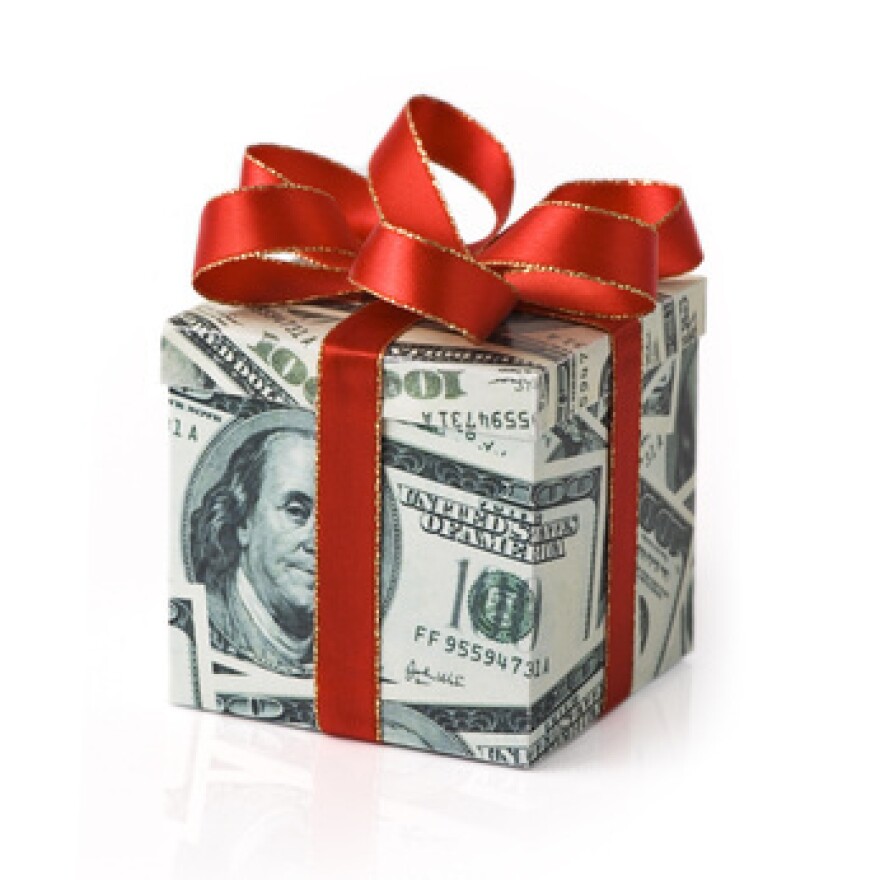When publicly held companies have excess cash, they often face two main choices: issue dividends, or buy back shares from the marketplace.
Both actions are considered roughly equal in terms of benefit to stockholders. On this week’s Money Matters, financial commentator Greg Heberlein explains why he prefers dividends.
Whenever profitable companies wind up with large hoards of cash that aren’t needed for product development or mergers and acquisitions, they come under a lot of pressure to share the wealth with stockholders.
Two prime examples would be Apple's $137 billion cash on hand, and Microsoft's more than $60 billion cash reserve.
Dividends
Dividends pay cash directly to shareholders. For most stocks, dividends are paid quarterly. Inherently, the returns exceed what one would receive in a savings account. That’s because stocks carry higher risks.
Dividends vary widely. The average dividend paid today on stocks in the Standard and Poor’s 500 index is just over 2 percent.
In 1932, during the Great Depression, dividend yield set a record at 13.6 percent. In 2000, when the dot-com explosion shot markets to the stratosphere, the yield bottomed at 1.11 percent.
These days, the yield has been roughly 2 percent.
Buybacks
In a share buyback, a company repurchases its own shares, removing them from the marketplace. As a result, an individual shareholder’s stake as a percentage of the whole company has grown. This tends to boost the stock price.
So, instead of receiving a cash dividend, the shareholder has the option of selling the stock at a higher price.
But there’s a hitch with buybacks.
Corporate executives are a lot like individual shareholders. Everyone knows the way to win in the stock market is to buy low and sell high. Unfortunately, human nature being what it is, studies show that many of us actually buy high and sell low.
The pressure to buy stocks is greater as the price rises, or peaks, than it is when the stock price is in a valley.
So if a company repurchases shares at the peak, the company loses money as the price falls, just as the shareholder would by buying at the top.
In the long run, one would expect both company and individual to do well, because most substantial companies see their stock prices rise over extended periods. But that’s little consolation to the individual who may wish or need to sell before that happens.
In a contest between dividends and share buybacks, the dividend wins.
Also note that when a company announces a buyback, the stock usually rises. However, that buyback can be illusory – it might take years to complete, or never be completed at all.
Corporate executives are not bound by such pronouncements. But a cash dividend is money in the bank.




